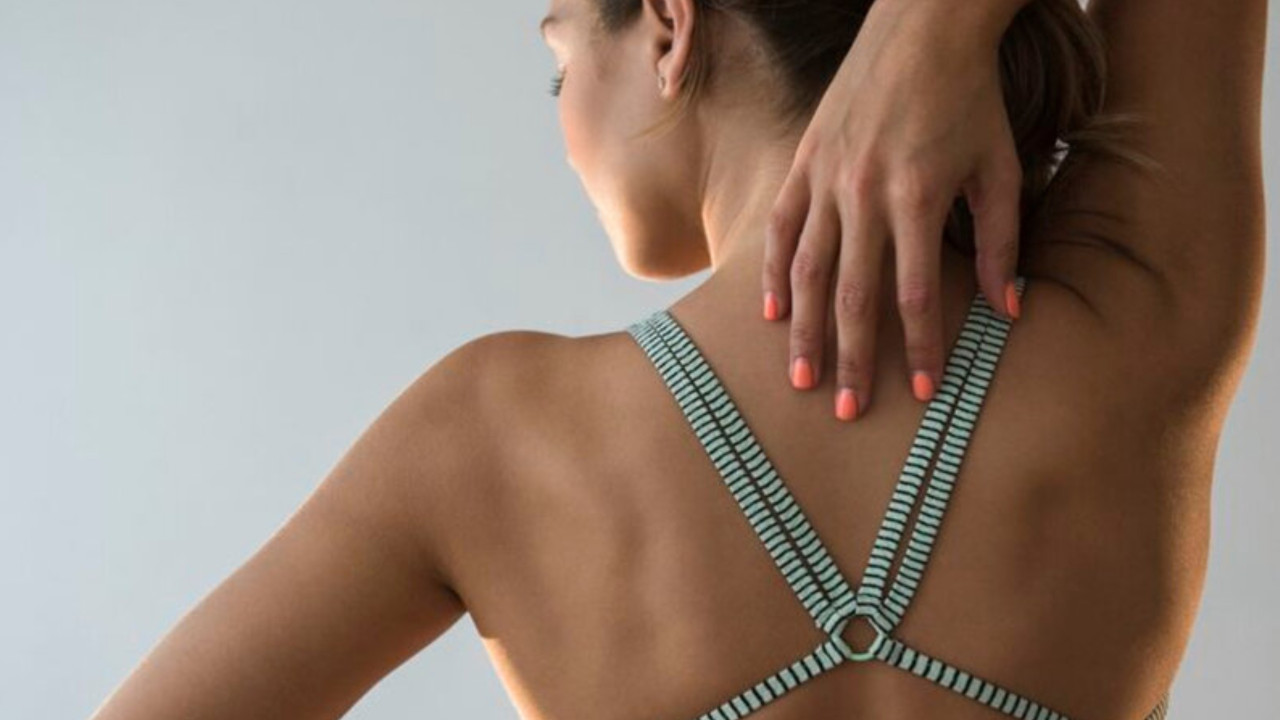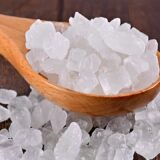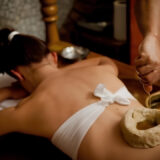Effective Ayurvedic Treatment for Frozen Shoulder Pain
Frozen shoulder, medically known as adhesive capsulitis, is a painful and debilitating condition characterized by stiffness, inflammation, and reduced range of motion in the shoulder joint. It can significantly impact daily activities, making even simple tasks like lifting an arm or reaching for objects extremely challenging.
While modern medicine offers treatments like physical therapy, painkillers, and in severe cases, surgery, Ayurveda provides a holistic and natural approach to addressing the root cause of frozen shoulder and promoting long-term healing.
In this article, we will explore the Ayurvedic perspective on the frozen shoulder, its causes, diagnosis, and a range of Ayurvedic treatments, including Panchakarma therapies, herbal remedies, diet, lifestyle modifications, and preventive measures.
By understanding and applying these principles, individuals suffering from frozen shoulders can find relief and restore their shoulder mobility and function.
Frozen Shoulder in Ayurveda
Apabahuka is a condition that primarily affects the shoulder joint (Amsa Sandhi) and is caused by an imbalance in the Vata dosha. Although the term Apabahuka is not directly mentioned in the category of Nanatmaja Vata Vyadhi (diseases caused solely by Vata dosha), Acharya Sushruta and other scholars have recognized it as a Vataja Vikara. The condition often begins with Amsa Shosha (wasting of the shoulder), which can be considered an early stage of the disease.
In Ayurveda, a frozen shoulder is primarily associated with an imbalance in the Vata dosha, one of the three fundamental energies (Vata, Pitta, and Kapha) that govern the body. Vata is responsible for movement, circulation, and nerve function. When Vata becomes aggravated, it can lead to dryness, stiffness, and reduced lubrication in the joints, resulting in conditions like a frozen shoulder.
Additionally, the accumulation of Ama (toxins) in the body due to poor digestion and metabolism can further exacerbate the condition. Ama blocks the channels (Srotas) responsible for nutrient transport and waste removal, leading to inflammation, pain, and stiffness in the shoulder joint.
Symptoms of Frozen Shoulder in Ayurveda
From an Ayurvedic perspective, a frozen shoulder is primarily linked to the aggravation of Vata dosha and the accumulation of Ama (toxins) in the body. The imbalance of these factors results in the following symptoms:
1. Severe Pain in the Shoulder Joint: The pain is usually sharp, and intense, and tends to worsen with movement. This is due to aggravated Vata, which creates dryness and lack of lubrication in the joint.
2. Stiffness and Reduced Range of Motion: A hallmark symptom, stiffness in the shoulder makes it difficult to move the arm freely. This restriction in movement is linked to an imbalance in Vata, which is associated with rigidity and tightness in the body.
3. A Feeling of Heaviness or Numbness in the Shoulder: The affected shoulder may feel heavy, swollen, or numb. This symptom is due to the stagnation of energy and circulation, commonly resulting from the accumulation of Ama and aggravated Vata in the area.
4. Cracking or Popping Sounds in the Joint: As the joint becomes restricted and the synovial fluid reduces, you may hear popping or cracking sounds during movement. This is often a sign of improper alignment and dryness in the joints.
5. Weakness and Fatigue in the Affected Arm: The arm may feel weak, tired, and drained, even after minimal use. This is due to the lack of proper circulation and energy flow in the affected area, caused by the imbalance in the doshas.
Causes of Frozen Shoulder in Ayurveda
Ayurveda identifies several factors that contribute to the development of a frozen shoulder:
- Vata Imbalance: Excessive physical activity, poor posture, or exposure to cold and dry climates can aggravate Vata, leading to joint stiffness and pain.
- Accumulation of Ama: Poor digestion and unhealthy dietary habits can result in the formation of Ama, which accumulates in the joints and causes inflammation.
- Lifestyle Factors: Sedentary habits, lack of exercise, and prolonged periods of inactivity can weaken the joints and muscles, making them more susceptible to conditions like frozen shoulder.
- Stress and Emotional Factors: Mental stress and emotional imbalances can disturb the doshas, particularly Vata, and contribute to musculoskeletal disorders.
- Previous Injuries or Surgeries: Trauma to the shoulder joint or surrounding tissues can trigger the onset of a frozen shoulder.
Ayurvedic Diagnosis of Frozen Shoulder
Ayurvedic diagnosis involves a holistic assessment of the individual’s physical, mental, and emotional state. Key diagnostic methods include:
- Nadi Pariksha (Pulse Diagnosis): An experienced Ayurvedic practitioner can assess the balance of the doshas by analyzing the pulse.
- Observation and Physical Examination: The practitioner examines the shoulder joint for swelling, tenderness, and range of motion.
- Assessment of Digestion and Metabolism: Since Ama plays a significant role in frozen shoulder, the practitioner evaluates the individual’s digestive health and metabolism.
- Lifestyle and Dietary Analysis: The practitioner reviews the individual’s daily routine, diet, and stress levels to identify contributing factors.
Ayurvedic Treatment Approaches for Frozen Shoulder
Ayurveda offers a multi-faceted approach to treating frozen shoulders, focusing on balancing the doshas, eliminating Ama, and restoring joint health. The treatment plan typically includes Panchakarma therapies, herbal remedies, diet, and lifestyle modifications.
1. Panchakarma Therapy
Panchakarma is a cornerstone of Ayurvedic treatment, designed to detoxify the body and restore doshic balance. For frozen shoulder, the following Panchakarma therapies are highly effective:
- Abhyanga (Oil Massage): A full-body or localized massage with warm medicated oils like Mahanarayan oil or Dhanwantharam oil helps reduce pain, improve circulation, and relax the muscles and joints.
- Swedana (Herbal Steam Therapy): Steam therapy with herbal decoctions opens up the channels, reduces stiffness, and promotes the elimination of toxins.
- Basti (Medicated Enema): Basti therapy is particularly beneficial for balancing Vata dosha. Herbal enemas help remove accumulated toxins and nourish the joints.
- Pinda Sweda (Bolus Massage): Warm herbal poultices are applied to the shoulder joint to reduce inflammation and improve mobility.
2. External Therapies
- Lepam (Herbal Poultice): A paste made from anti-inflammatory herbs like ginger, turmeric, and castor oil is applied to the shoulder to relieve pain and swelling.
- Kati Basti: A localized treatment where a reservoir of warm medicated oil is placed over the shoulder joint to deeply nourish and strengthen the tissues.
Ayurvedic Medicines for Frozen Shoulder
- Yogaraja Gulgulu – This herbal formulation is effective in reducing pain and improving joint flexibility. It also helps balance Vata dosha, which is primarily responsible for stiffness in the shoulder.
- Rasnaerandadi Kashaya – This decoction is beneficial when there is joint pain coupled with stiffness. It helps relieve inflammation and promotes overall joint health, especially in Vata-related conditions.
- Shilajatu Vati – Known for its regenerative properties, this medicine is useful in cases of tissue degeneration. It supports the rejuvenation of tissues and enhances strength and vitality.
- Prasaranyadi Kashaya and Sahacharadi Kashaya – These herbal decoctions are particularly effective when there is stiffness in the joints. They help relieve muscle tightness and improve flexibility, restoring mobility.
- Maharasnadi Kashaya – This medicinal formula provides relief from pain and inflammation. It is particularly helpful in treating conditions that involve both muscular and joint stiffness.
- Dashamoolarishta – Known for its quick action in relieving inflammation, this tonic is often used for its anti-inflammatory properties, promoting faster recovery from pain and swelling in the joints.
- Vatavidhwamsa Rasa – This powerful formulation is used in the treatment of neuritis, colic pain, and other Vata disorders. It aids in calming the nervous system and reducing associated pain and discomfort.
- Mahavatavidhwamsa Rasa – Specially formulated for Vata-related conditions, this remedy is used to treat abdominal pain and other Vata imbalances, offering pain relief and restoring balance to the body.
- Vishamushti Vati – This tablet is used for its detoxifying properties and to balance the Vata dosha, which helps reduce pain, inflammation, and stiffness in the joints.
- Chandraprabha Vati – This classical Ayurvedic medicine is effective for pain relief and improving mobility in cases of joint disorders like frozen shoulder. It strengthens the bones and joints while also helping to alleviate muscle spasms and stiffness.
These medicines, when used in combination with proper dietary and lifestyle adjustments, can aid in alleviating symptoms and improving the function of the shoulder joint. Would you like further details on how to use these in a treatment regimen?
Ayurvedic Oils for Frozen Shoulder
- Vishagarbha Taila – This herbal oil is commonly used in Ayurvedic treatments for paralysis, stiffness in the hands and legs, neck stiffness, and similar conditions. It has anti-inflammatory and analgesic properties that help alleviate joint pain and improve flexibility.
- Mahanarayana Taila – A well-known oil in Ayurveda, it is used to treat arthritis, paralysis, and eye diseases. It can be applied externally, taken orally, and used in various Ayurvedic therapies. Its warming nature helps to relieve deep-seated pain and stiffness, promoting better circulation.
- Dhanwantara Taila – This oil is especially effective for treating Vata-related diseases, including rheumatoid and osteoarthritis, spondylosis, headaches, and neuro-muscular conditions. It nourishes the joints and muscles, reducing inflammation and improving mobility.
- Kottamchukkadi Taila – An Ayurvedic oil used to address Vataja disorders that cause neuro-muscular pains, sciatica, and spondylosis. It is formulated based on Kerala Ayurveda practices. Its rejuvenating properties support nerve and muscle health, aiding in the recovery from stiffness and pain.
- Bala Taila – Known for its nourishing properties, this oil is beneficial in reversing degeneration and promoting overall joint health. It helps to strengthen muscles and tissues, preventing further wear and tear in the affected areas.
- Prasaranyadi Taila – Particularly useful in relieving stiffness, this oil is ideal for conditions like frozen shoulder, providing relief and improving mobility. Its ability to promote relaxation of tight muscles helps restore normal range of motion.
These oils, when applied correctly, can significantly support the treatment of frozen shoulder by addressing the root cause and alleviating symptoms. Would you like guidance on application techniques or dosage for these oils?
Diet and Lifestyle Recommendations
A balanced diet and lifestyle are essential for managing a frozen shoulder and preventing recurrence.
Dietary Guidelines
- Favor Warm and Nourishing Foods: Include cooked vegetables, whole grains, soups, and stews to balance Vata.
- Incorporate Healthy Fats: Use ghee, sesame oil, and olive oil to lubricate the joints.
- Avoid Cold and Dry Foods: Minimize raw salads, cold beverages, and processed foods.
- Stay Hydrated: Drink warm water or herbal teas throughout the day.
Lifestyle Modifications:
- Regular Exercise: Gentle stretching and yoga asanas like Bhujangasana (Cobra Pose), Gomukhasana (Cow Face Pose), and Garudasana (Eagle Pose) can improve shoulder mobility.
- Stress Management: Practice meditation, Pranayama (breathing exercises), and mindfulness to reduce stress and balance the doshas.
- Adequate Rest: Ensure sufficient sleep and avoid overexertion.
Home Remedies for Frozen Shoulder
In addition to professional Ayurvedic treatments, several home remedies can provide relief from frozen shoulder pain:
- Warm Sesame Oil Massage: Gently massage the shoulder with warm sesame oil to improve circulation and reduce stiffness.
- Ginger or Castor Oil Packs: Apply a warm compress made with ginger paste or castor oil to the affected area to relieve pain and inflammation.
- Turmeric Milk: Drink a glass of warm milk with a teaspoon of turmeric before bedtime to reduce inflammation and promote healing.
- Epsom Salt Bath: Soak in a warm bath with Epsom salts to relax the muscles and joints.
Preventive Measures
Preventing frozen shoulder involves maintaining a balanced lifestyle and addressing the underlying causes of Vata imbalance and Ama accumulation:
- Follow a Daily Routine (Dinacharya): Wake up early, practice yoga, and eat meals at regular times to maintain doshic balance.
- Detoxify Regularly: Undergo seasonal Panchakarma therapies to eliminate toxins and rejuvenate the body.
- Strengthen the Joints: Engage in regular physical activity and joint-strengthening exercises.
- Avoid Overexertion: Listen to your body and avoid activities that strain the shoulder joint.
Frozen shoulder is a challenging condition that can significantly impact one’s quality of life. However, Ayurveda offers a holistic and natural approach to addressing the root cause of the problem and promoting long-term healing. By balancing the doshas, eliminating toxins, and adopting a healthy diet and lifestyle, individuals can find relief from pain and restore their shoulder’s mobility and function.
Resources:
- Charaka Samhita, Sushruta Samhita, and Ashtanga Hridaya provide in-depth knowledge of Ayurvedic principles and treatments.(1)
- A study on Apabahuka (frozen shoulder) and its management by Laghumasha taila nasya.(2)
- Effect of multimodality Ayurveda treatment in Avabahuk w.s.r. to Frozen Shoulder – A Case Study(3)
- A Case Study on Avbahuka w.s.r to Frozen Shoulder(4)

























